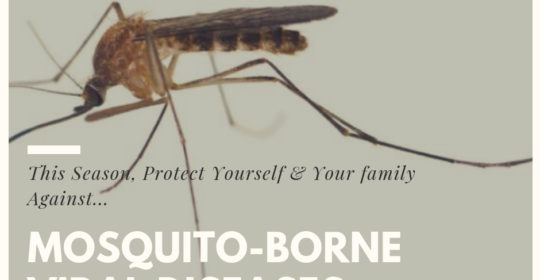
Protect Against Mosquito-Borne Viral Diseases This Season
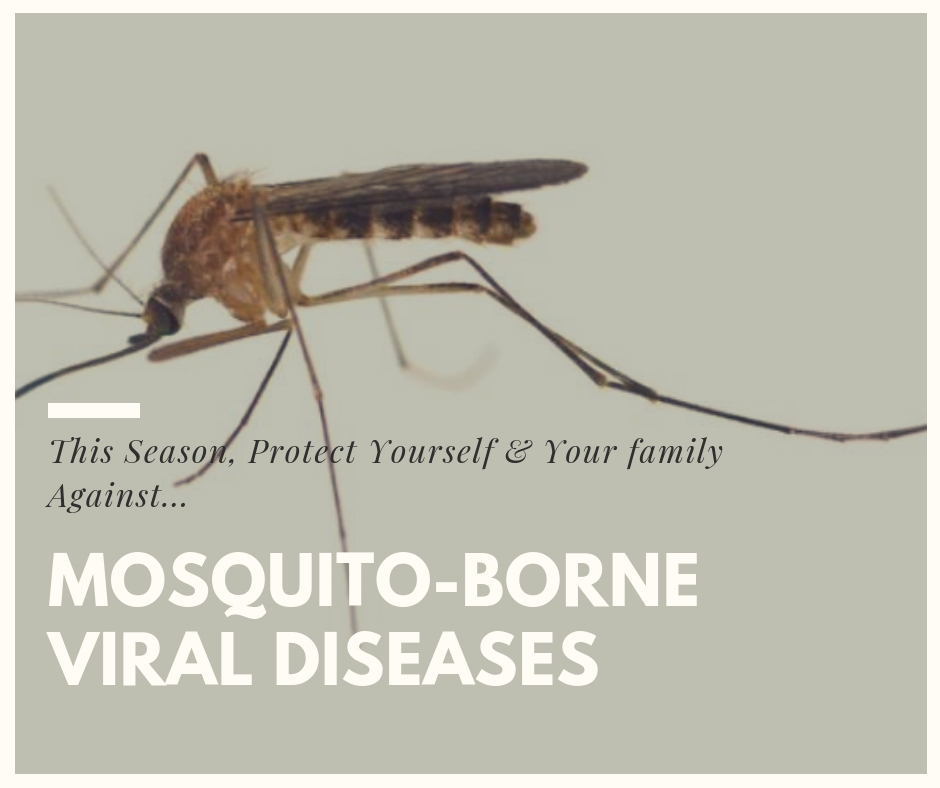
According to Georgia Department of Public Health (DPH) several mosquito-borne viruses circulate in Georgia each year and are capable of causing disease in humans and other animals. The most common mosquito-borne viruses in Georgia include West Nile virus, Eastern Equine encephalitis virus, and LaCrosse virus. Mosquito-borne viruses are most active late spring through early fall in Georgia.
West Niles Virus
West Nile virus (WNV) is the leading cause of mosquito-borne disease in the continental United States. It is most commonly spread to people by the bite of an infected mosquito. Cases of WNV occur during mosquito season, which starts in the summer and continues through fall. There are no vaccines to prevent or medications to treat WNV in people. Fortunately, most people infected with WNV do not feel sick. About 1 in 5 people who are infected develop a fever and other symptoms. About 1 out of 150 infected people develop a serious, sometimes fatal, illness.
Eastern Equine Encephalitis
EEE virus is a rare cause of brain infections (encephalitis). Only a few cases are reported in the United States each year. Most occur in eastern or Gulf Coast states. Approximately 30% of people with EEE die and many survivors have ongoing neurologic problems.
The incubation period for Eastern equine encephalitis virus (EEEV) disease (the time from infected mosquito bite to onset of illness) ranges from 4 to 10 days. EEEV infection can result in one of two types of illness, systemic or encephalitic (involving swelling of the brain, referred to below as EEE). The type of illness will depend on the age of the person and other host factors. It is possible that some people who become infected with EEEV may be asymptomatic (will not develop any symptoms).
Systemic infection has an abrupt onset and is characterized by chills, fever, malaise, arthralgia, and myalgia. The illness lasts 1 to 2 weeks, and recovery is complete when there is no central nervous system involvement. In infants, the encephalitic form is characterized by abrupt onset; in older children and adults, encephalitis is manifested after a few days of systemic illness. Signs and symptoms in encephalitic patients are fever, headache, irritability, restlessness, drowsiness, anorexia, vomiting, diarrhea, cyanosis, convulsions, and coma.
Approximately a third of all people with EEE die from the disease. Death usually occurs 2 to 10 days after onset of symptoms but can occur much later. Of those who recover, many are left with disabling and progressive mental and physical sequelae, which can range from minimal brain dysfunction to severe intellectual impairment, personality disorders, seizures, paralysis, and cranial nerve dysfunction. Many patients with severe sequelae die within a few years.
La Crosse Encephalitis
La Crosse encephalitis is a viral disease spread to people by the bite of an infected mosquito. Most cases occur in the upper Midwestern, mid-Atlantic, and southeastern states. Many people infected have no apparent symptoms. Some of those who become ill develop severe neuroinvasive disease (disease that affects the nervous system). Severe disease often involves encephalitis (an inflammation of the brain) and can include seizures, coma, and paralysis. Severe disease occurs most often in children under the age of 16.
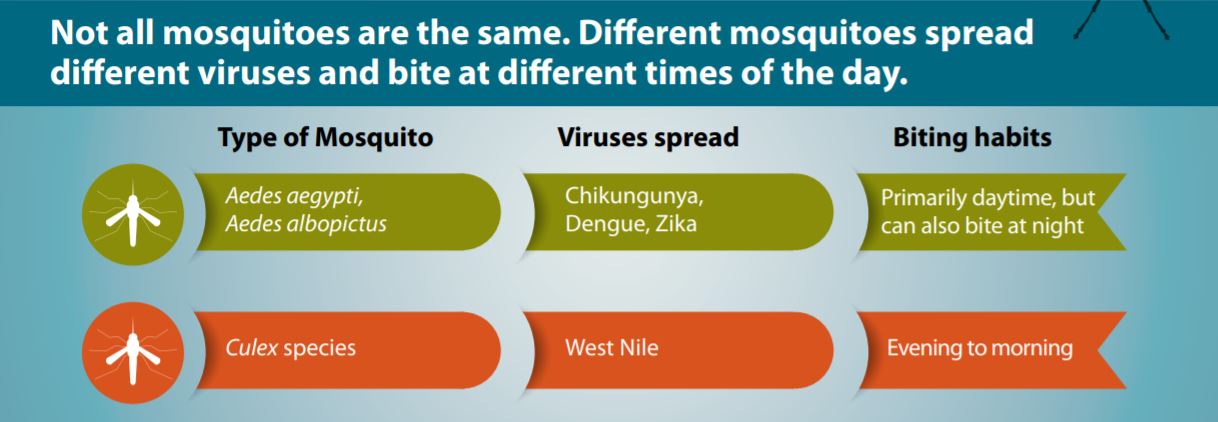
Protect yourself and your family from mosquito bites
Use Insect Repellent
- Use Environmental Protection Agency (EPA)-registered insect repellentsExternal with one of the active ingredients below. When used as directed, EPA-registered insect repellents are proven safe and effective, even for pregnant and breastfeeding women.
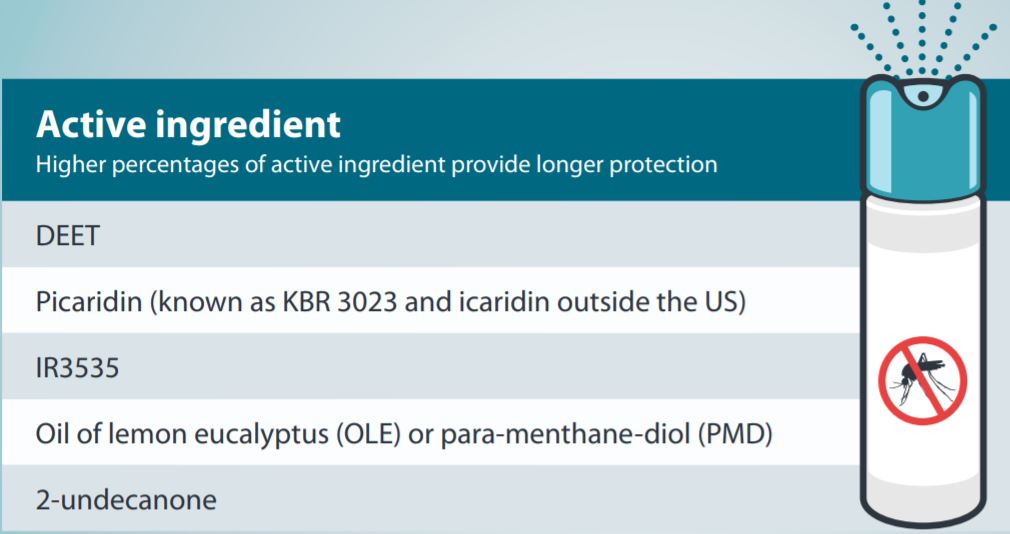
- Always follow the product label instructions.
- Reapply insect repellent as directed.
- Do not spray repellent on the skin under clothing.
- If you are also using sunscreen, apply sunscreen first and insect repellent second.
Tips for babies and children
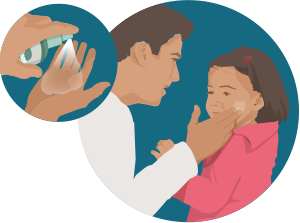
- Always follow instructions when applying insect repellent to children.
- Do not use insect repellent on babies younger than 2 months old.
- Instead, dress your child in clothing that covers arms and legs.
- Cover strollers and baby carriers with mosquito netting.
- Do not use products containing oil of lemon eucalyptus (OLE) or para-menthane-diol (PMD) on children under 3 years old.
- Do not apply insect repellent to a child’s hands, eyes, mouth, cuts, or irritated skin.
- Adults: Spray insect repellent onto your hands and then apply to a child’s face.
Wear long-sleeved shirts and long pants
Treat clothing and gear
- Use permethrin to treat clothing and gear (such as boots, pants, socks, and tents) or buy permethrin-treated clothing and gear.
- Permethrin is an insecticide that kills or repels mosquitoes.
- Permethrin-treated clothing provides protection after multiple washings.
- Read product information to find out how long the protection will last.
If treating items yourself, follow the product instructions.
- Do not use permethrin products directly on skin.
Take steps to control mosquitoes indoors and outdoors
- Use screens on windows and doors. Repair holes in screens to keep mosquitoes outdoors.
- Use air conditioning, if available.
- Stop mosquitoes from laying eggs in or near water.
- Once a week, empty and scrub, turn over, cover, or throw out items that hold water, such as tires, buckets, planters, toys, pools, birdbaths, flowerpots, or trash containers.
- Check indoors and outdoors.
Source:
- CDC
- Georgia Department of Public Health


Most Commented